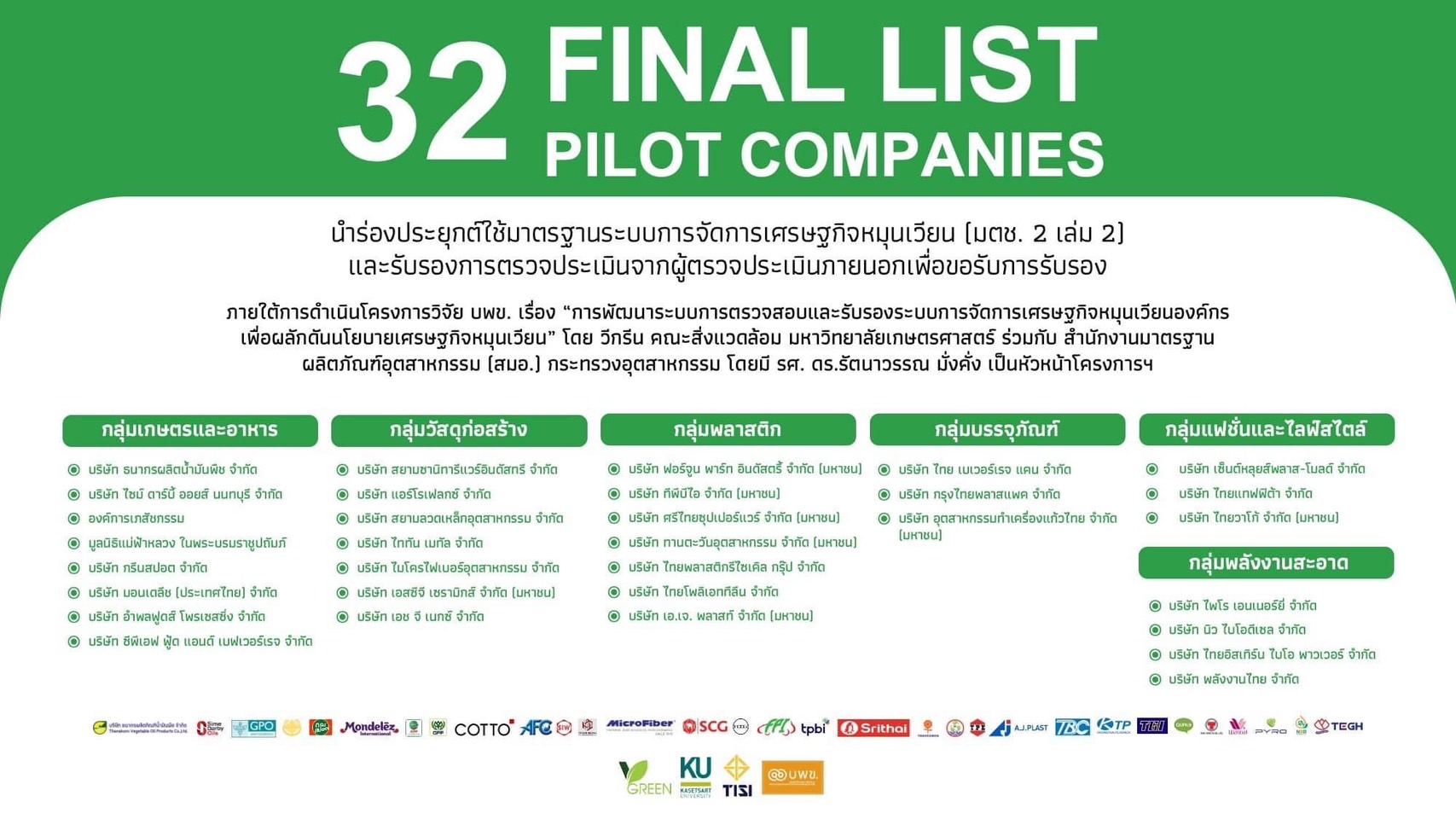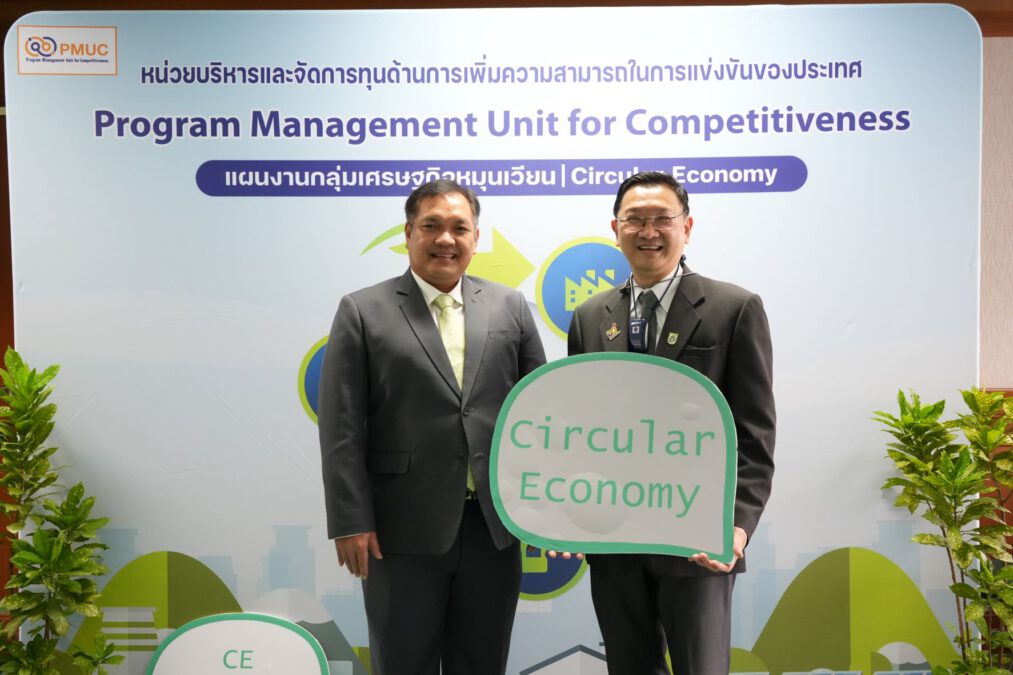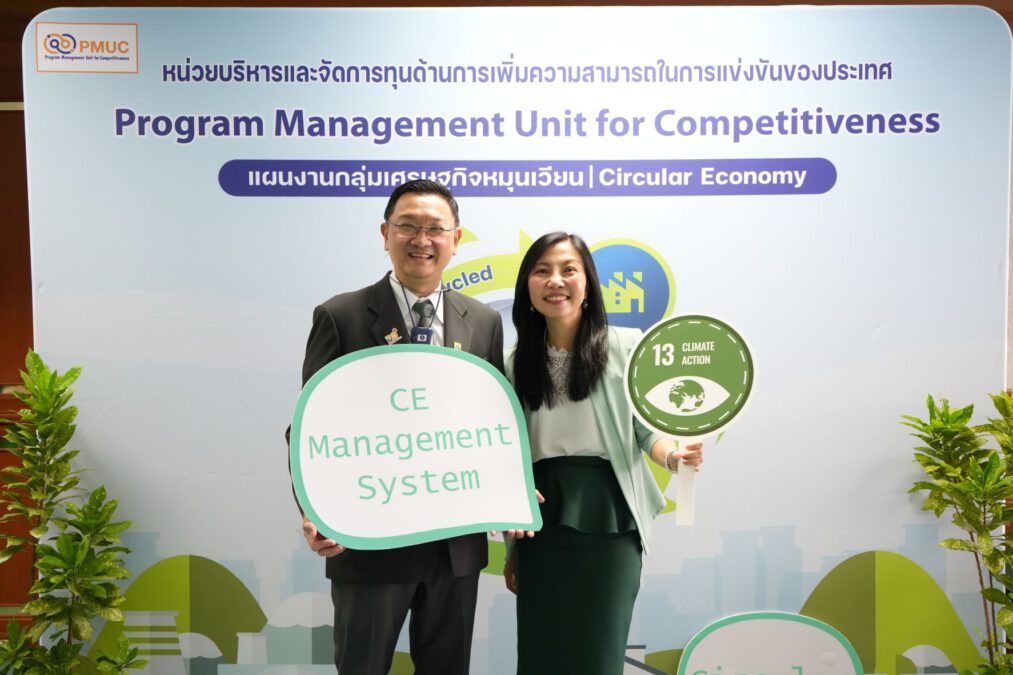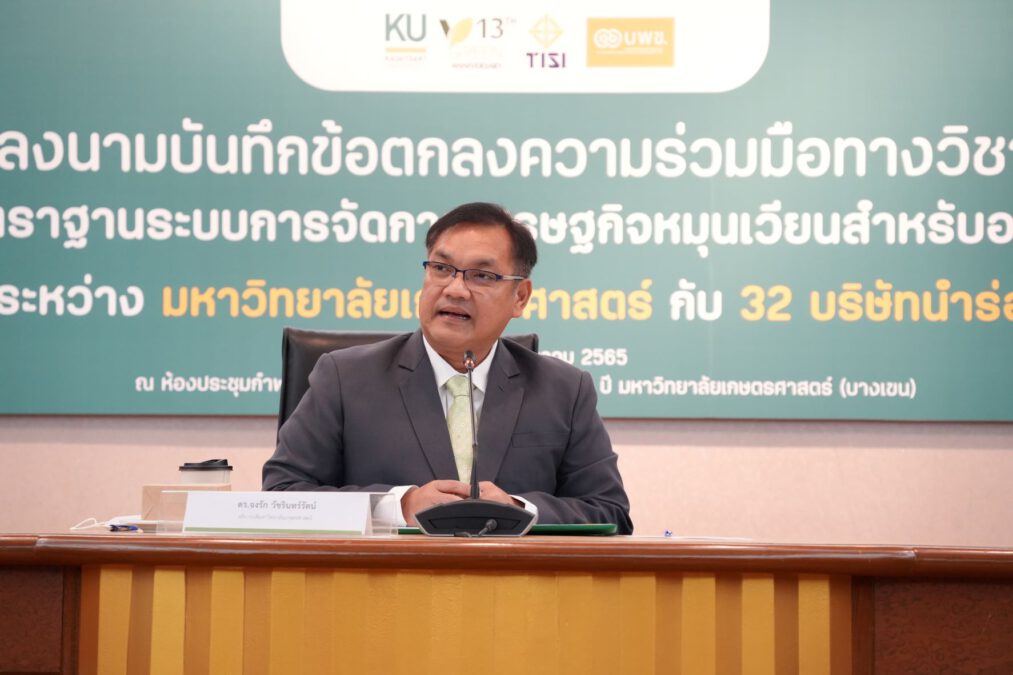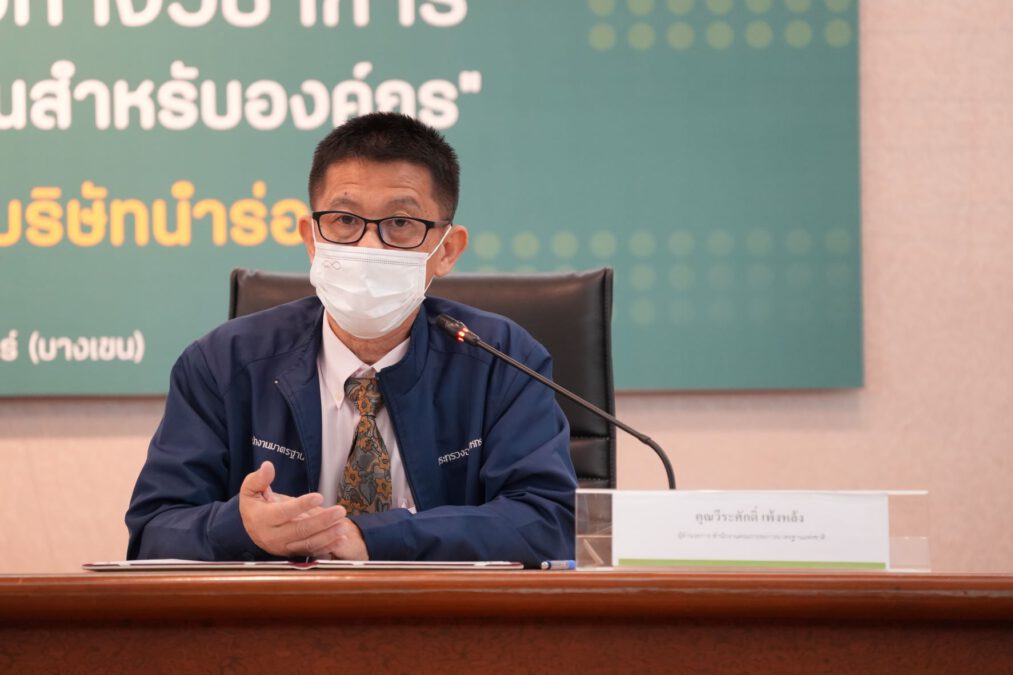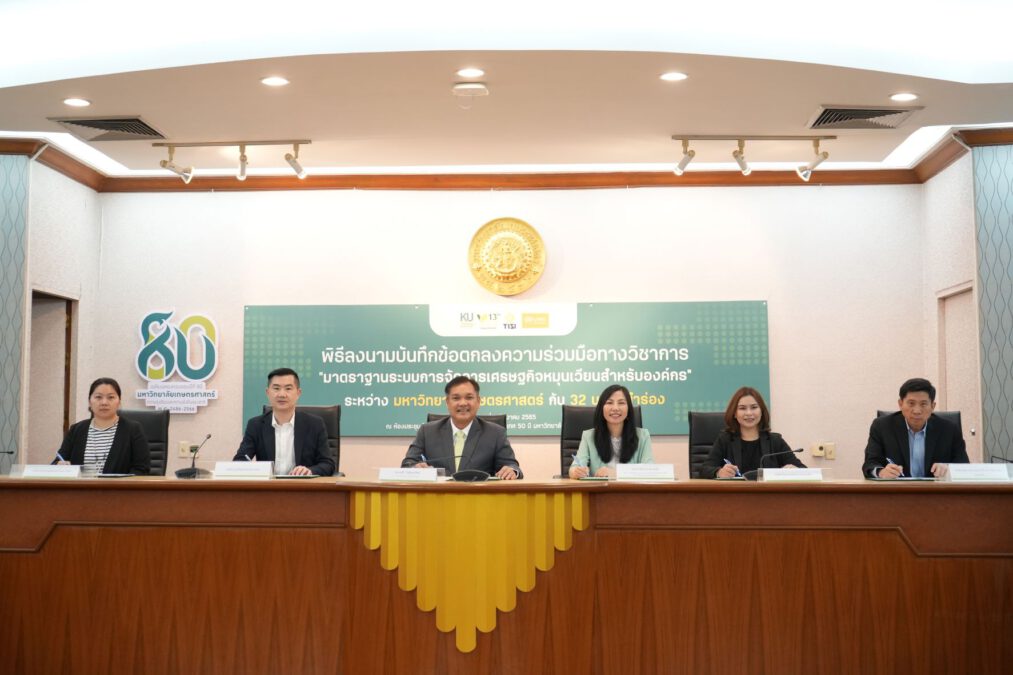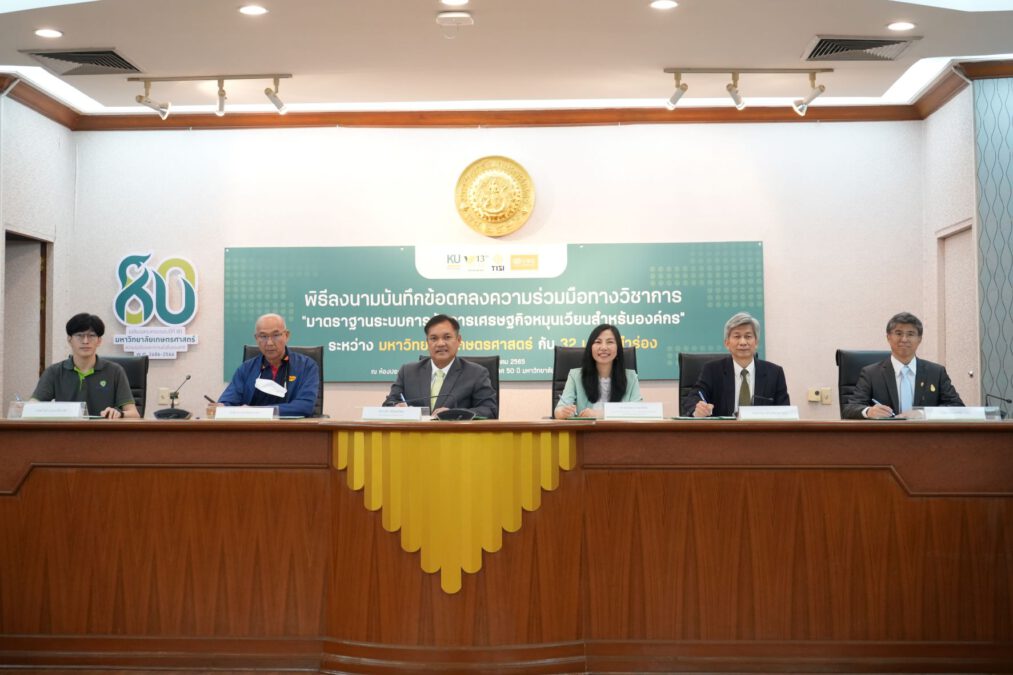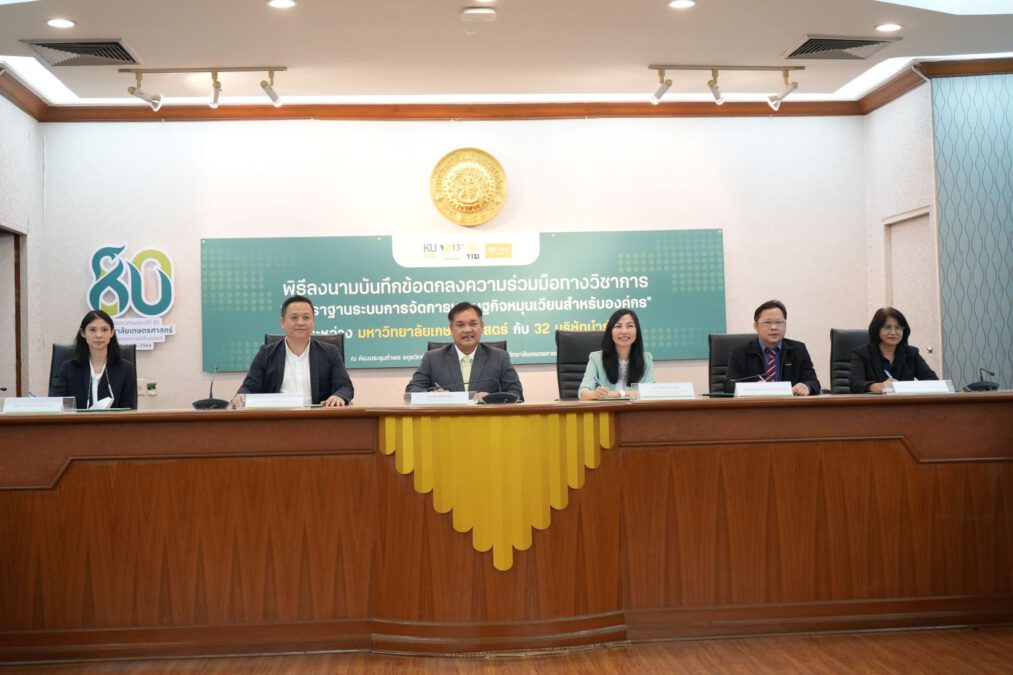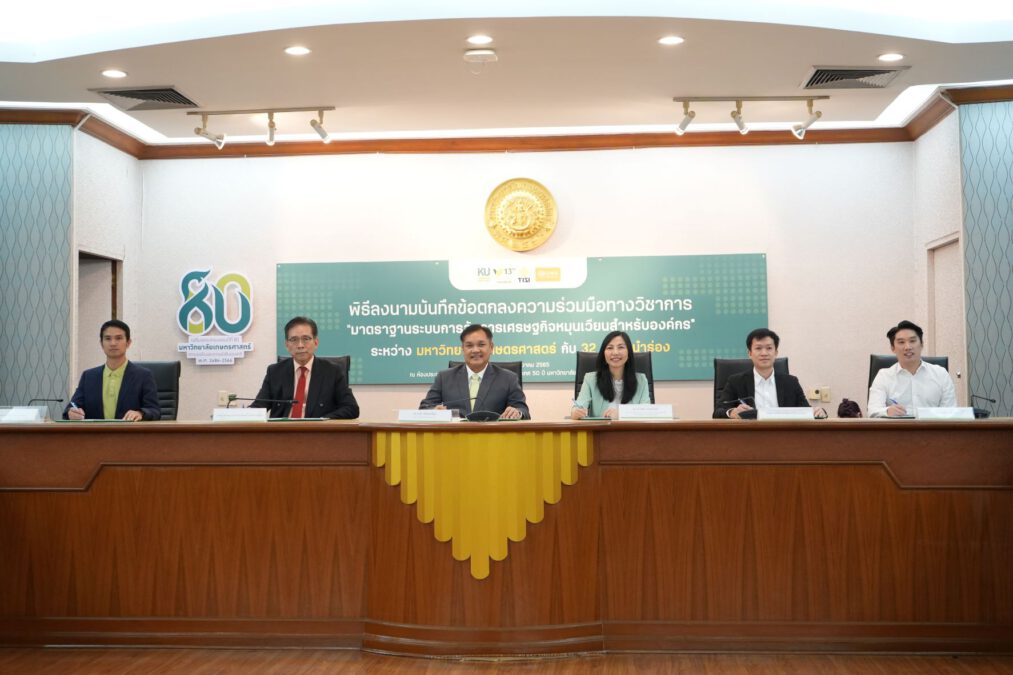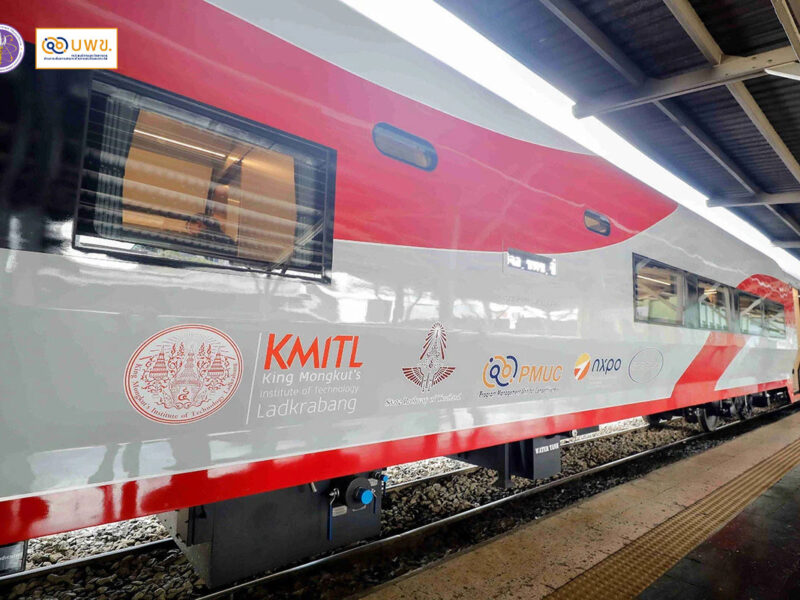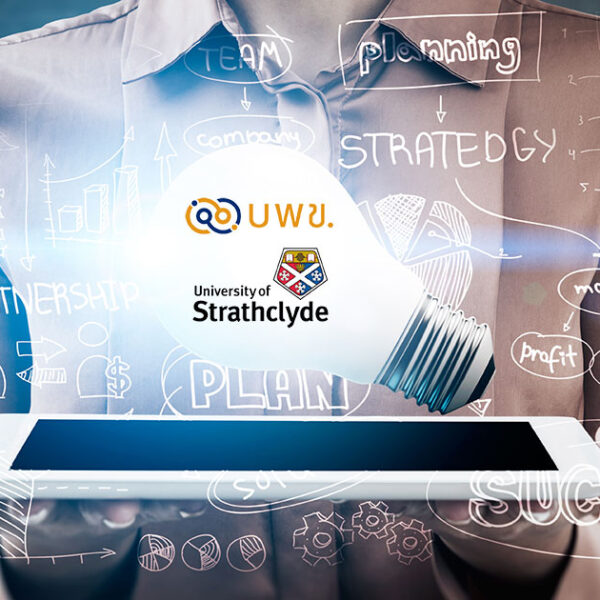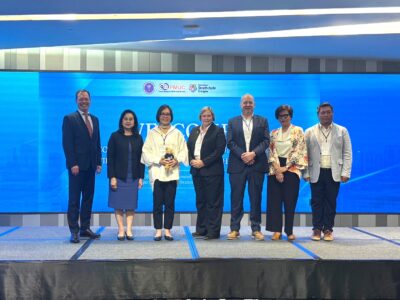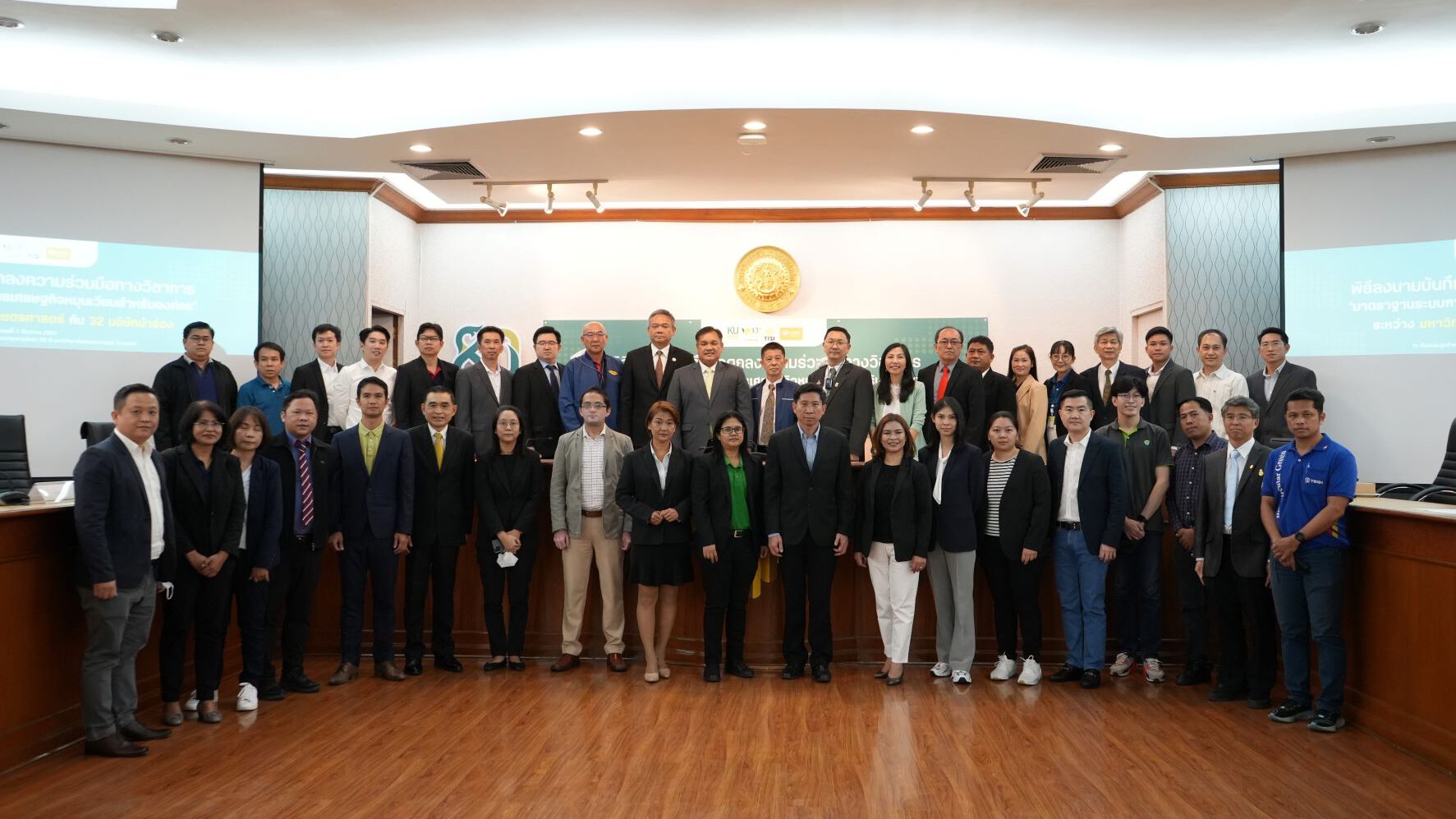
The Program Management Unit for Competitiveness (PMUC) joined effort with the Center of Excellence in Green Business Strategy (V-Green) and the Thai Industrial Standards Institute (TISI), Ministry of Industry, to develop standards for managing circular economy for organizations to push forward and drive the circular economy policy at the national level, with an aim to enhance the competitiveness of Thai entrepreneurs. The signing ceremony for academic cooperation with 32 pilot companies was held on December 7th, 2022 at Kampol Adulwit Conference Room, Kasetsart University (Bang Khen).
From the academic cooperation between VGreen, the Faculty of Environment, Kasetsart University and TISI, Ministry of Industry, under the support of research funding from the PMUC to drive the circular economy policy under the country’s BCG model, which many private companies are now very active and have begun to embrace the policy. Therefore there is a current need for concrete practical guidelines for the organizations to follow. Thus came the development of a standard called the Circular Economy Management System (CEMS), which will be a management system standard for organizations, to which the PMUC has provided research funds under the initiative to “Develop a system to verify and certify the organization’s circular economy management system to drive the circular economy policy”, with Assoc. Prof. Rattanawan Mangkang, Ph.D., director of VGreen, acting as the project leader. She will be in charge of developing an auditing the certification system for Thailand’s organizational circular economy management system, in order to achieve management standards accepted at the national and international level and elevate business operations under the concept of the Circular Economy to practical application in accordance with national audit and certification standards. It is also imperative to develop auditors to have the knowledge and skills to assess compliance with the requirements of the Circular Economy management system. Including the preparation of a user manual for entrepreneurs, for which TISI has issued a standard called NBTC 2 Volume 2, which is a clear guideline for the private sector to implement. This project aims to enhance business operations under the Circular Economy concept, ultimately leading to the application and responding to the needs of the private sector. All this is done to certify that the private sector has actually applied the Circular Economy approach.
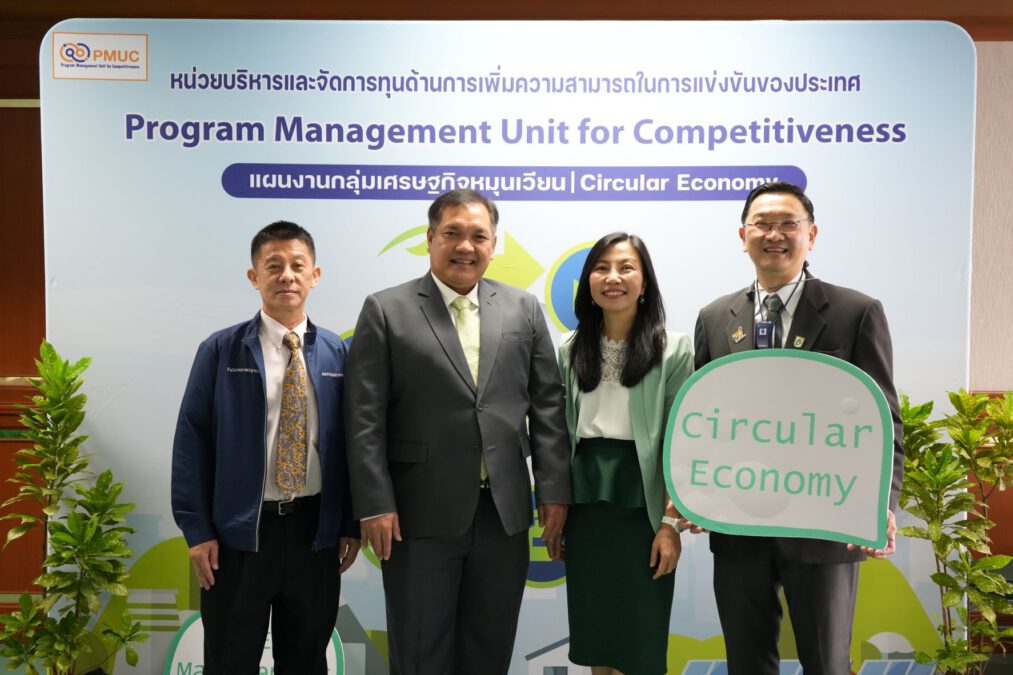
Recently, there was a campaign to select pilot companies to participate in the project with specific selection criteria. Included in the criteria: organization must have a clear Circular Economy policy; must have an environmental management system meeting the ISO14001 standard or equivalent; organization must have resources and personnel that can be devoted to the project; and the organization must be able to disclose information on the implementation of the requirements of the standard. An important role and duty of the pilot companies is to participate in the project activities, whether it be sending personnel to attend training on interpretation of requirements and best practices, and then to apply the knowledge gained to their own organizations under the guidance and technical consultation with project consultants. There are 32 pilot companies covering 6 target industries, including: food agriculture, construction materials, plastic, packaging, fashion/lifestyle, and renewable energy, which passed the selection criteria and signed the memorandum of cooperation between Kasetsart University, sponsor of VGreen, and all 32 pilot companies on December 7th, 2022.
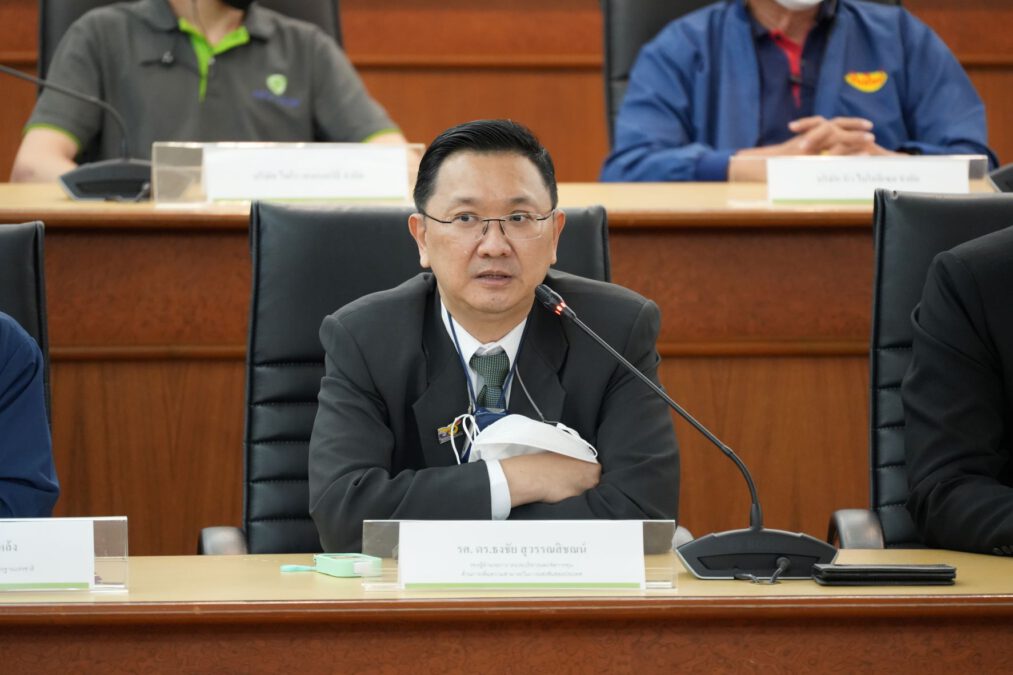
Assoc. Prof. Thongchai Suwannasich, Ph.D., deputy director of PMUC, spoke about the aim of supporting research projects under the Circular Economy concept, that “PMUC aims to enhance the competitiveness of the industrial sector in Thailand under the Circular Economy principle according to the BCG policy of the country, emphasizing on the collaboration of both the public and private sectors to improve the quality of life and sustainability for Thai entrepreneurs and the general public, while at the same time giving due attention to environmental biodiversity. In this project, PMUC has provided research funding to promote the national Circular Economy policy towards tangible application of the Circular Economy concept by the private sector. We would like to see a drive to bring research results to commercialization. We try to drive entrepreneurs and various industries to contribute to economic development that is friendly to the environment, or what has been coined the Green Growth by PMUC. There is a network of cooperation in working with all sectors from various industries, whether it is plastic packaging group, agro-food group, or construction material group, all of which will help drive the Circular Economy. And through these spearhead initiatives, we will be able to reach the ultimate goal of sustainability.”
However, the Circular Economy concept may still be new to many organizations. Therefore, it is necessary to have a consultant to support the process. The goal is to develop knowledgeable personnel who have the ability to be consultants, to have a body of knowledge and understanding about good practice guidelines, and be able to give technical advice to pilot companies on how to proceed in accordance with the requirements stipulated by the SIC 2 Volume 2. In addition, in terms of certification audits, something very important that must be done in parallel is preparing auditors, with necessary knowledge and skills in auditing compliance with the requirements of standards in order to lead to the development of audit and certification system. Therefore, the project has supported the establishment of a network of consultants from both the public and private sectors, and has invited certification bodies and auditors to participate in the project by considering the selection of auditors who have previous experience as ISO14001 auditors. Furthermore, it has permitted consultants to be selected from both private consulting firms, independent consultants, or university professors. In any case, a qualified consultant must be a person who has knowledge about ISO14001, Circular Economy and Lifecycle Materials, as well as having prior experience in industrial plant consultancy.
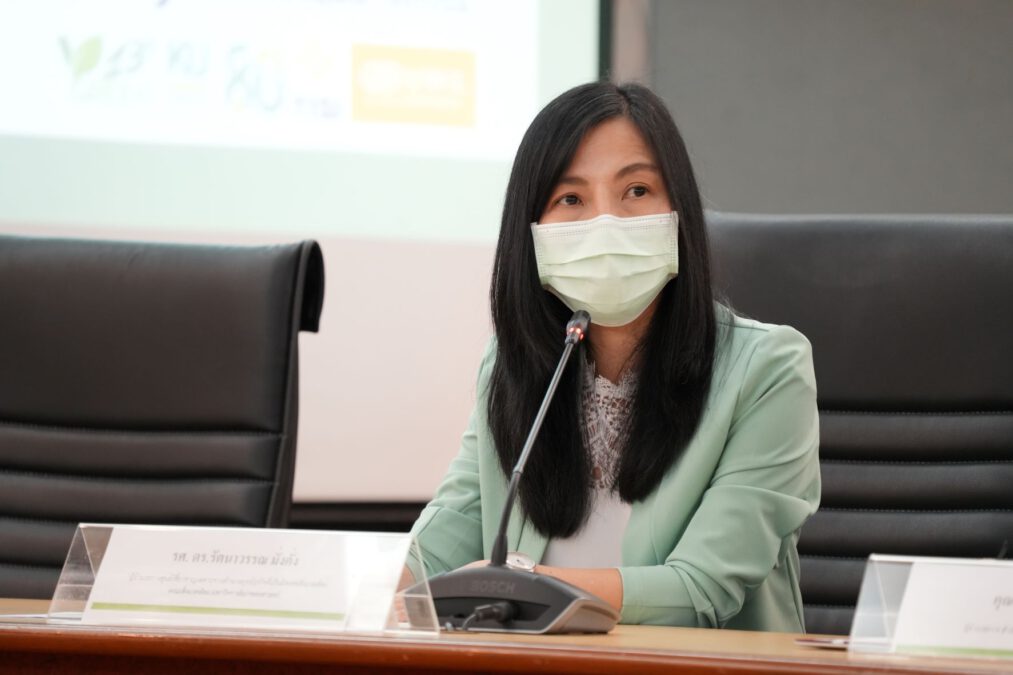
Assoc. Prof. Dr. Rattanawan Mangkang, director of VGreen, and project leader, said that “Thailand will be the first country in the ASEAN to develop standards and certification systems for Circular Economy management. Everything we do is with an aim to encourage the private sector to adopt Circular Economy management standards and obtain certifications to be used in marketing communications with customers. It is expected that the pilot companies participating in the project will develop a Circular Economy management system according to the SIC 2 Volume 2 standards, in order to promote efficient use of resources, ultimately leading to a reduction in the amount of waste as well as reducing greenhouse gas emissions, which is a national KPI of the Circular Economy policy. The development of Thailand’s audit and certification system in the Circular Economy will make us the first country in the ASEAN region that has developed such a Certification System in the area of Circular Economy management. This will help to build confidence among business partners throughout the supply chain. And the hope is that it will increase market opportunities, and will help to enhance Thailand’s competitiveness as a whole. Having developed this certification system has also helped to enhance the quality of the workforce in Thailand, whether it be consultants, assessors, as well as the personnel of the pilot companies participating in the project activities, who will be able to develop their knowledge and develop their potential in concrete application of the circular economy.”
From this research funding initiative, the PMUC aims to raise the level of business operations under the concept of the Circular Economy to practical application in accordance with the requirements of the national audit and certification standards. PMUC intends to achieve this by supporting the implementation of the requirements of the Circular Economy management system standards for organizations (SIC 2, Volume 2), including requesting assessment for certification and providing services to audit and certify organizations that comply with the standard of the Circular Economy Management system. When this system is implemented systematically, it will help all sectors to increase their competitiveness and elevate the country’s economy as a whole, helping to increase the national GDP from improved acceptance in the global markets. Market confidence will also be enhanced from being CMS certified product manufacturers and becoming a leader in the Circular Economy in ASEAN and globally.
